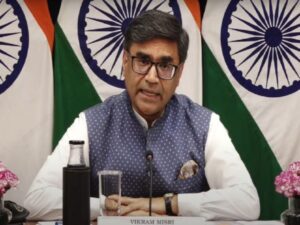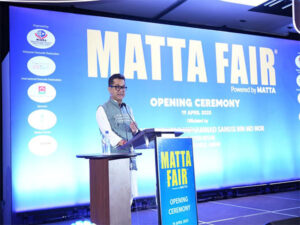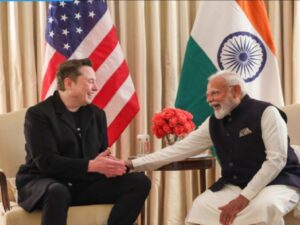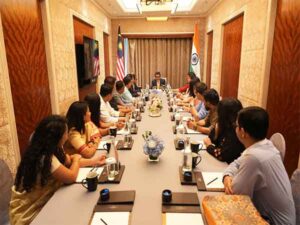PoK: Awami Action Committee to protest against govt if demands not met
Muzaffarabad (PoK), March 4 (ANI): Gilgit-Baltistan Awami Action Committee has announced that if the Pakistan-occupied regional government does not fulfil their demands including the end of load shedding and revival of subsidies on flour, by March 5, then they will initiate the protest from March 10, writes Dr Amjad Ayub Mirza, an author and a human rights activist from Mirpur in Pakistan-occupied Kashmir who currently lives in exile in the UK.
Gilgit-Baltistan Awami Action Committee demanded the end of load shedding, the revival of subsidies on flour, reversing the proposal of the revenue act and an end to land grab in the Pakistan-Occupied Gilgit Baltistan (PoGB) by the Pakistan army and government. In Pakistan-occupied Kashmir (PoK) pensioners have held a meeting and have announced that a workable plan to start protests is underway. And then came the bombshell that was dropped by Khalid Khurshid, the chief minister of PoGB.
On March 1, Khalid Khurshid said that the coffers of the PoGB had dried up and that there is no money. In PoK, it is reported that inflation has reached record levels in 48 years and flour prices have increased by 56 per cent. Reports of destitution and death are a daily occurrence. Many are suffering from mental depression in PoK-GB. Suicides are being committed as a last resort to free one of worldly misery.
According to Mirza, this misery is not brought upon them by god but by the colonial rule of Pakistan.
For 75 years Pakistan has failed to invest in the basic infrastructure of the occupied territories, on the contrary, Pakistan has resorted to the worst kind of oppression and plunder of our natural resources. Time is running out for the people of both PoK and PoGB. As Pakistan struggles to juggle its political and economic crisis, the stakes for the people of occupied territories remain higher than ever before.
Pakistan is fighting for its survival. It is faced with an existential crisis that cannot be resolved unless Pakistan is willing to take drastic steps in the political and economic realms. Politically, Pakistan must enter into negotiations with the Baloch and TTP rebels and come up with a workable solution that is agreed upon by all parties involved.
Economically, Pakistan must plan an elaborate default mechanism and declare itself bankrupt. India can save Pakistan and come to the aid of its people. However, Pakistan has constantly been expressing its unwillingness in seeking help from India. Pakistan is facing a dilemma. If it does not ask India for help, it dies. If Pakistan asks India to help her out, then the 75-year-old narrative that Pakistan has built around the ideology that Hindus and Muslims cannot co-exist in a demarcated geographical boundary is humiliatingly undermined.
Nevertheless, Pakistan still has a choice to make. The choice is a hard one but this is the only way they might, and I mean might, be able to survive as a ‘state’. Pakistan has to give up its claim on PoK and PoGB including Kashmir valley and Laddakh. Pakistan must enter into constructive negotiations with India to discuss how can Pakistan save face and in a dignified manner hand over PoK-GB back to India.
The people of both PoK and PoGB are starving and businesses are going bankrupt due to the unavailability of power and electricity.
Thousands have lost their jobs as businesses and small industrial workshops are forced by circumstances to shut down. How long can this suffering go on for before the world community would lend us some attention? What will it take for the Pakistan government and state to realise that in the great game of regional power and economic development, Pakistan has arrived at a stalemate? The game is over. Pakistan as an idea died in 1971 with the formation of Bangladesh.
Today it is breathing its last as a viable economic or political entity. By all standards of political viability or economic sustainability, Pakistan’s options remain exhausted. Whilst the time for the people of PoK-GB to take the plunge and reunite with India is also running out and running out fast, Mirza wrote.






